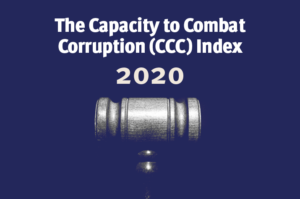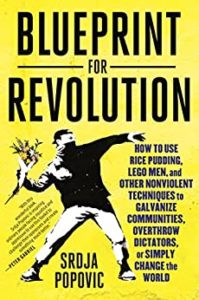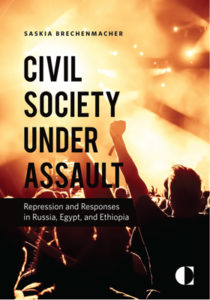COVID-19 is not only spreading disease and economic pain, but also corruption scandals throughout Latin America. In many ways, this was a foreseen tragedy, say analysts Roberto Simon and Geert Alders.
Months ago, organizations like Transparency International, the Inter-American Development Bank (IDB) and the OECD Anti-Bribery Group were sounding the alarm about increased corruption risks related to coronavirus emergency spending. The need to rapidly mobilize massive resources – procuring expensive medical equipment, rolling out unprecedented stimulus packages and more – could create an environment ripe for corruption. And here we are, they write for AS/COA’s Americas Quarterly:
 The timing of the crisis is particularly concerning. COVID-19 is hitting Latin America while a region-wide anti-corruption wave that gained forced a few years ago has lost steam and, in some countries, is dangerously receding. The scope and scale of this change is clear in the 2020 edition of our Capacity to Combat Corruption (CCC) Index, which assesses Latin American countries’ ability to detect, punish and prevent corruption.
The timing of the crisis is particularly concerning. COVID-19 is hitting Latin America while a region-wide anti-corruption wave that gained forced a few years ago has lost steam and, in some countries, is dangerously receding. The scope and scale of this change is clear in the 2020 edition of our Capacity to Combat Corruption (CCC) Index, which assesses Latin American countries’ ability to detect, punish and prevent corruption.
“Yet the pandemic can also create an opportunity to focus again on practices and policies that really make a difference in fighting corruption,” they add. “We know what they are – from increasing the efficiency and independence of courts to creating greater transparency in the relationship between money and politics. The key challenge will be creating political conditions conducive to this reform agenda.” To read the full report click here.
Coronavirus needn’t prevent protest movements from generating and manifesting mass support for their cause, or from creating symbolically powerful, media-ready images and videos to get their message to the public, policymakers, and the world, notes Brookings analyst Tamara Cofman Wittes:
 For decades, protesters (many operating in authoritarian regimes where they couldn’t safely gather en masse) have found creative ways to spread their messages without marching, to demonstrate they have wide public support, and even to make protest action fun. Many of these lessons have been captured by veteran activists and scholars, and shared. Two ready resources are a book by veteran Serbian activist Sjrda Popovic and Matthew Miller, called “Blueprint for Revolution: How to Use Rice Pudding, Lego Men, and Other Nonviolent Techniques to Galvanize Communities, Overthrow Dictators, or Simply Change the World”; and a website, book, and toolkit available at BeautifulTrouble.org.
For decades, protesters (many operating in authoritarian regimes where they couldn’t safely gather en masse) have found creative ways to spread their messages without marching, to demonstrate they have wide public support, and even to make protest action fun. Many of these lessons have been captured by veteran activists and scholars, and shared. Two ready resources are a book by veteran Serbian activist Sjrda Popovic and Matthew Miller, called “Blueprint for Revolution: How to Use Rice Pudding, Lego Men, and Other Nonviolent Techniques to Galvanize Communities, Overthrow Dictators, or Simply Change the World”; and a website, book, and toolkit available at BeautifulTrouble.org.
Politicians around the world have embraced war metaphors to describe the pandemic, note analysts Natalia Linou and Mary T. Bassett. But a punitive approach to enforcing public health measures will cause further damage—but a civilian, unarmed alternative is possible, they write for Foreign Affairs.
Government responses to the new coronavirus are disrupting civil society all over the world, notes Carnegie’s global Civic Research Network (above). But while government measures are dramatically restricting civic space, the global crisis is also catalyzing new forms of mobilization.
In many countries, civil society actors are rising to the challenge, filling in gaps left by governments to provide essential services, spreading information about the virus, and protecting marginalized groups. They are also forging new coalitions to hold their governments to account.

Carnegie
These trends are encouraging, but questions remain about the pandemic’s long-term impact on civil society: Can the efforts of civic actors help counter governments’ negative narratives of them? Will the pandemic worsen existing divides in society or encourage new alliances? Can civic actors invent new ways to advocate, and could local initiatives transform into national-level action after the crisis?
Join members of Carnegie’s global Civic Research Network (above) for a discussion on how civil society is responding to the pandemic and what the longer-term consequences could be for civic activism. This issue is explored in a recent Carnegie article, “Civil Society and the Coronavirus: Dynamism Despite Disruption.”







